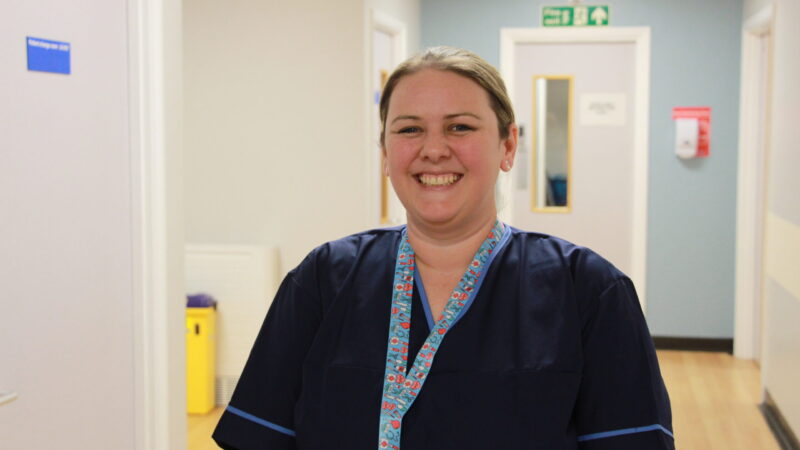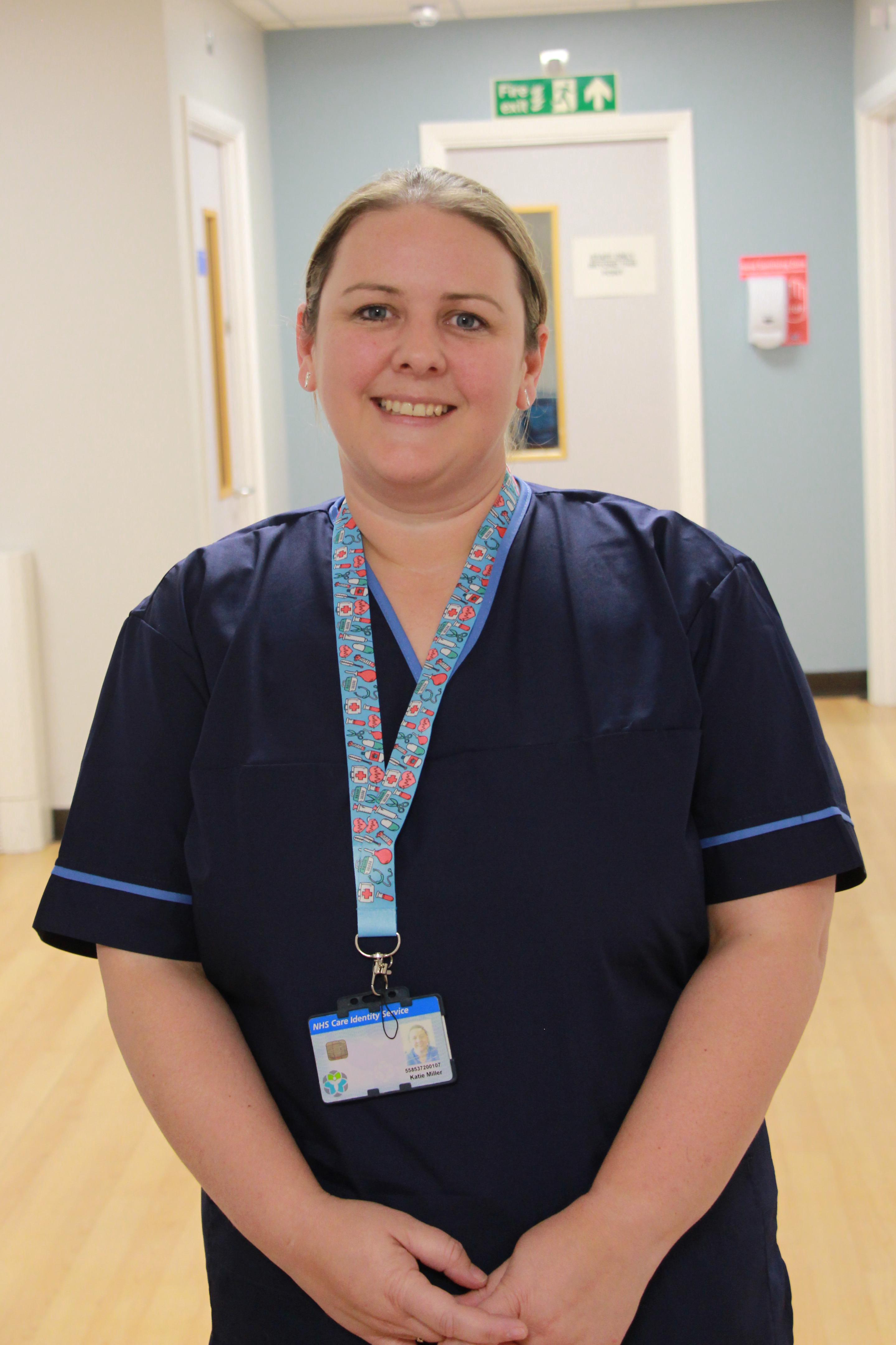
Katie Miller, 37, has spent her career with North Tees and Hartlepool NHS Foundation Trust since qualifying in 2008.
After moving into the urology department almost six years ago, she has worked her way through additional training and up the ranks. In January this year, she began her new role as urology specialist nurse manager – leading on nursing in the department for patients with issues affecting the kidneys, bladder, prostate and more.
We sat down with Katie to find out more about her new role and how the department is supporting nurses’ aspirations.
What’s your career background?
I qualified in 2008 and worked on general surgery for gynaecology and urology. Then when they opened up ward 31 (the surgical observations unit), I moved over there doing level one care.
April 2019 is when I started in urology as a specialist nurse and I found where I wanted to be. I worked my way through the training up to where I am now and officially began in my new role at the beginning of 2025.
What does your role as urology specialist nurse manager involve?

I’m still completing clinical tasks – and my hope is that I always will.
I carry out two-week rule clinics for prostate patients with the aim of leading to a faster diagnosis – which, in turn, will lead to patients receiving treatment earlier resulting in better outcomes. I also perform flexible cystoscopies to help diagnose bladder cancers and other urological conditions.
Outside of clinical duties, the role mainly involves managing our nurses, doing the rotas and lots of other things people maybe don’t realise.
We’ve just begun looking at our cancer pathways – how we can change them, improve them and how we can also improve the follow up for our patients.
What’s a shift like?
It’s a lot more varied than I think people believe it’s going to be.
We do a lot of clinical tasks. We have our own nurse-led clinics for prostate cancer follow up and kidney cancer follow up and we do chemotherapy into the bladder and immunotherapy. Our team also performs bladder treatments, remove stents, flexible cystoscopy and we run haematuria clinics.
We have a lot of contact with our patients – from diagnosis, through treatment and then through follow up as well. We get to build up a really good rapport with them because we follow them right through their journey, and we try keep the same nurses where we can for that continuation of care.
Who’s in the team?
We’ve got doctors, secretaries and nurses in our department. We have seven specialist nurses and a cancer care coordinator, Rebecca, who works alongside us and provides a lot of non-clinical support to patients.
We also work really well with the consultants, secretaries and registrars across sites with South Tees Hospitals NHS Foundation Trust.
It’s all for the benefit of the patients. Working so well together means that it’s not just one opinion they’re getting. Our patients receive an excellent standard of care because there’s lots of people and different types of experience weighing in and making decisions.

What opportunities are there in urology for nurses?
A lot of our nurses come in and they do clinical skills, a couple are doing their prescribing at the minute and I’ve just finished doing a masters. We have a lot of study days as well that we send nurses on – recently they’ve been on a bladder cancer one.
We have a lot of opportunities for our staff and we encourage them to take these.
What do you love about your role in urology?
For me, it’s being with a patient through their journey.
When they’re given their cancer diagnosis, we sit and speak to them afterwards – to give them the support and comfort we know they need. We know what’s happened before their diagnosis, we care for them throughout their treatment and then we follow up afterwards. We’re right there with them.
It’s a lovely job and it’s so rewarding.